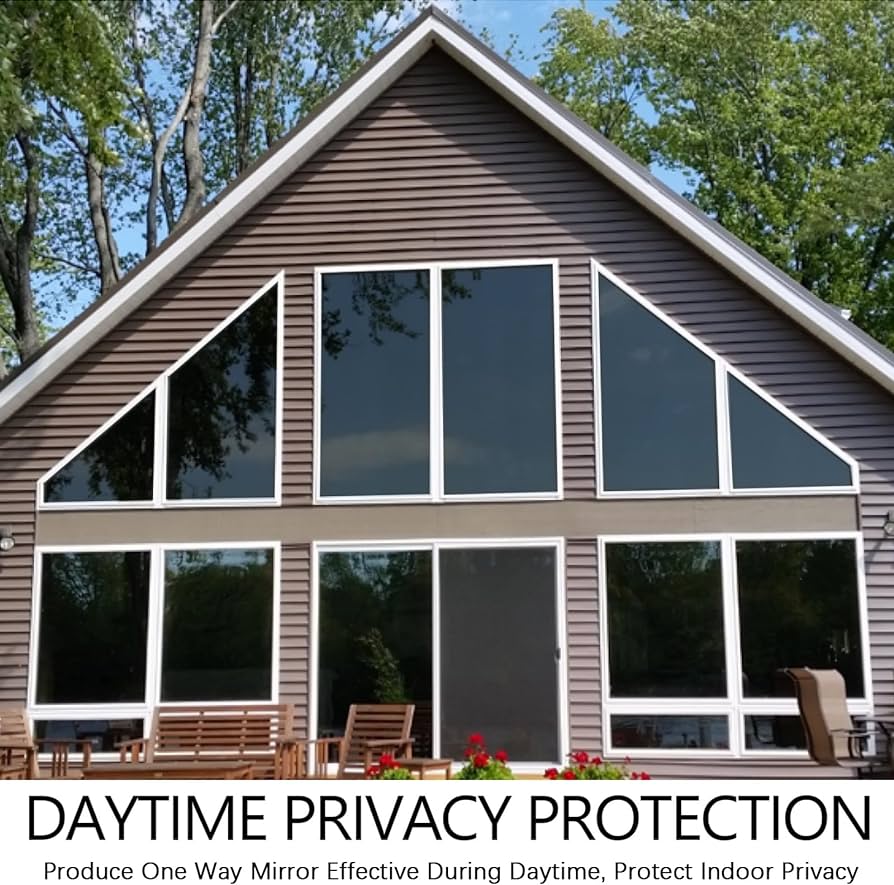Update Your Home with Professional Residential Window Tint Solutions
Update Your Home with Professional Residential Window Tint Solutions
Blog Article
How Residential Window Tinting Improves Your Home's Energy Effectiveness
Residential home window tinting provides an engaging service for house owners looking for to improve energy effectiveness within their living spaces. By using specialized films to home windows, it successfully decreases warm transfer, therefore stabilizing interior temperatures and lessening the need for too much heating or cooling.
Recognizing Window Tinting
Recognizing window tinting is essential for home owners looking for to boost both convenience and power effectiveness in their living areas. Residential Window Tint. Home window tinting involves the application of a slim film to the interior or outside surface of glass windows. This film can considerably regulate the amount of sunshine and warmth that goes into a home, hence influencing indoor environment conditions
There are different kinds of window tinting movies available, each with distinctive properties. The performance of window tinting is typically gauged by its Visible Light Transmission (VLT) percentage, which indicates exactly how much light can pass through the film.
Advantages of Power Performance
Home window tinting not just boosts visual appeals however also plays a significant role in enhancing energy performance within household areas. By reducing warmth transfer through windows, tinted films develop an extra stable indoor climate, which can bring about significant reductions in power consumption for heating and cooling. This energy performance equates into reduced energy expenses, supplying house owners with significant long-term cost savings.

Furthermore, home window tinting improves the comfort of living spaces. By decreasing glow and obstructing hazardous UV rays, tinted home windows develop a more positive setting, which can cause enhanced well-being for occupants. The defense versus UV rays additionally helps protect furnishings and flooring from fading, adding to the long life of home products.
Just How Tinting Functions
Tinting movies run via a mix of sophisticated materials and modern technologies made to control the amount of solar power getting in a home. Mainly made up of polyester, these films commonly include metallic or ceramic particles that soak up and mirror warm. This dual capability enables them to substantially reduce the infiltration of ultraviolet (UV) rays and infrared radiation while allowing visible light to travel through.
The efficiency of window tinting is gauged by its solar warm gain coefficient (SHGC), which shows how much solar power is sent via the window. Reduced SHGC worths are better as they signify higher warm being rejected. In addition, home window tints can include a variety of shades, permitting property owners to personalize their aesthetic preferences while improving power effectiveness.
In addition, these movies serve as an obstacle, protecting against warmth loss throughout cooler months by reflecting interior heat back right into the space. This thermal insulation impact complements the cooling benefits obtained during warmer months, contributing to a balanced indoor climate year-round. By taking care of solar power properly, property home window tinting not only improves comfort however additionally plays an essential duty in decreasing power usage and lowering utility bills.
Picking the Right Color

There are different kinds of window movies offered, consisting of dyed, metalized, and ceramic. Colored films are affordable but might have restricted durability. Metalized films provide far better heat rejection yet can disrupt electronic signals. Ceramic movies give outstanding heat control without jeopardizing visibility and are extremely sturdy, making them a popular choice.
Noticeable light transmission (VLT) is an additional vital element, as it shows the amount of all-natural light that can pass via the colored glass. Homeowners ought to select a color with a VLT that complements their lighting preferences while still giving adequate glow reduction.
Furthermore, analyzing the solar heat gain coefficient (SHGC) can help establish exactly how well a tint can block warm from sunlight. A reduced SHGC suggests better heat control, inevitably enhancing power effectiveness.
Setup and Maintenance Tips
Correct setup and upkeep are crucial components in taking full advantage of the benefits of domestic window tinting. Specialists additionally utilize specialized tools and methods, which can improve the sturdiness and performance of the color.
Adhering to setup, maintenance is crucial to lengthen the life of the window movie. It is advised to wait at least 30 days before cleaning up the colored home windows to permit the sticky to treat totally.
Dealing with these issues immediately can avoid more damages and keep energy effectiveness. By sticking to these installment and maintenance suggestions, house owners can guarantee their home window tinting continues to offer substantial energy savings and convenience for years to come.
Final Thought
To conclude, household window tinting functions as a reliable option for improving power performance within homes. By minimizing warmth transfer and obstructing unsafe UV rays, home window films contribute to reduce power consumption and improved interior comfort. The choice of ideal tinting materials, together with proper installment and upkeep, even more optimizes these benefits. Ultimately, window tinting represents a lasting investment that not only reduces energy expenses yet also promotes a comfortable living atmosphere throughout the year.
Window tinting entails the application of a thin movie to the interior or outside surface area of glass home windows. By reducing helpful hints heat transfer via windows, tinted films create an extra steady interior climate, which can lead to substantial decreases in power intake for heating and cooling.The effectiveness of window tinting is measured by its solar warm gain coefficient (SHGC), which indicates exactly how much solar power is sent through the window. By handling solar energy efficiently, domestic window tinting not just boosts convenience but additionally plays an important duty in reducing energy this post usage and decreasing utility costs.
By reducing warmth transfer and obstructing dangerous UV rays, window movies add to reduce power consumption and enhanced interior comfort.
Report this page